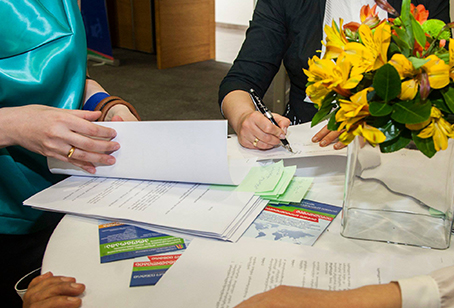Georgia: Second in world for female employment in top business jobs

Women are occupying more senior management positions in Georgia and around the globe, say one of America’s largest accounting and advisory firms.
Grant Thornton, the sixth largest US accountancy and advisory organisation, has been tracking gender diversity in business leadership over the past decade. The company released its research in a report titled ‘Women in business: the path to leadership’, which showed increasing numbers of women were employed in top roles in Eastern Europe.
Similarly, there had been "some progress” in Europe, while Japan, India and Germany remained at the bottom of the rankings where fewer women were employed in management positions.
Grant Thornton’s research revealed that 40 percent of senior business roles in Russia are occupied by women – the highest in the world and almost double the global average of 22 percent. The next five countries on the list are near neighbours: Georgia (38 percent), Poland (37 percent), Latvia (36 percent), Estonia (35 percent) and Lithuania (33 percent).
Domination of Eastern European nations is explained by a complex blend of factors including history, culture and demographics. A thriving culture of female entrepreneurship is a legacy of the Communist ideal of equality of opportunity and this extends into the broad range of subjects women study in the region,” stated the Grant Thompson report.
At the bottom of the list was Japan, which had 8 percent of senior management roles occupied by females. The country has remained at the bottom of the table every year since 2004. Germany (14 percent) and India (15 percent) sit second and third to bottom on the list respectively.

Globally today, just 22 percent of senior roles are held by women, compared with 19 percent in 2004. Almost a third of businesses have no women in their senior leadership teams, although this has fallen by six percent over the past three years.
Overall, Grant Thornton said drawing on information from 5,404 interviews in 35 economies conducted through the International Business Report and 20 in-depth interviews with senior business leaders, their report found that women’s advancement was being constrained by a number of factors, from entrenched social norms and gender bias to parenthood and archaic business practices.
To put it simply: when women thrive, businesses thrive. If an economy is only using half of its most talented people then it immediately cuts its growth potential. Getting more women into the workforce will not solve the looming productivity crisis but it would be a step in the right direction,” said Francesca Lagerberg, Grant Thornton’s global leader for tax services and sponsor on people and culture issues.
The proportion of senior roles held by women varied enormously by industry. Women tend to be over-represented in service industries such as education, healthcare and hospitality, while the leadership teams of more traditional, primary industries such as manufacturing, transport, construction and real estate, mining and quarrying were overwhelmingly made up of men, noted the report.
Grant Thornton said: "The business world needs more female leaders. Fewer women in senior management means weaker diversity, which leads to more ‘groupthink’, resulting in poorer decisions.”
 Tweet
Tweet  Share
Share